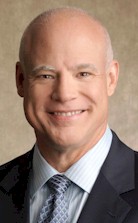
There is much discussion surrounding new hotel openings, design enhancements, room upgrades, guest perks, etc., all of which contribute to the continual revolutionize of guest experience. The hospitality industry continues to evolve as new trends surface and hotels undergo continual changes not only to accommodate the changing needs and expectations of guests - but to set new standards in how we serve our customers. In this article, I will discuss the emergence of new trends, shift in consumer preferences, and opportunities for continuous innovation to drive results. READ MORE



















